That being said, we certainly don’t need to follow every piece of advice that pops up on the internet, especially because some can do more harm than good. Netizens have recently been discussing toxic parenting trends that future generations will probably mock, so we’ve compiled a list of them down below. Keep reading to find conversations with parenting experts Dr. Samantha Rodman Whiten and Sue Atkins, host of Navigating the Digital Jungle. And be sure to upvote the replies you agree with!
#1
Not touching your children.
I'm surprised this hasn't been mentioned more.
Kids of all ages need to feel your love. It makes them feel secure, safe, and good. If you deprive your kid of physical affection, they will seek it elsewhere… and you will not like it.
I am not exaggerating: I can not remember a single time either of my parents has hugged me or kissed me or touched me in a non-hurtful way. Not even when I was in elementary school.
I am now a high school student and sometimes I want someone to give me a reassuring touch, or feel safe in their arms; not romantically, but from an adult. I know this because I was starved from it as a child.
Love your children. Show them through actions.
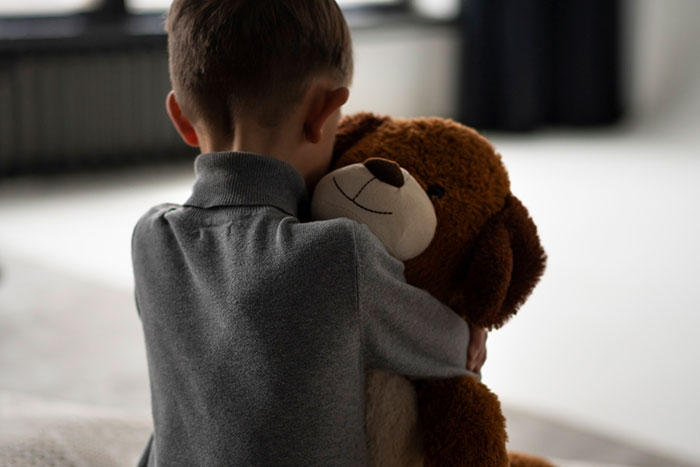
Image credits: Anonymous
#2
My husband and I have had 7 children. The first 6 came in a span of 10 years (1997–2007) and our youngest, number 7, is 10 months old. He was a delightful surprise in 2015.
The trends raising our youngest have certainly changed in the 18 years since my oldest was a baby. I didn’t even have a cell phone then! We used VCR tapes, cassettes of Barney were in the tape deck in the van, Wii only meant 'we'….
The dangerous trend I have observed in more recent years is not being there. Oh as a mom of many I am “there”, but sometimes not really THERE. So my number one suggestion is be there- in the moment- with your child. Put your phone down- look into their beautiful eyes and listen to them. Here’s why… you will blink and your little one will be an adult.
I feel like this last little blessing has taught me sooo much about the passing of time.
Not to waste it on my phone- reading about the lives of others while the ones around me need me, want to talk to me and really would love for their mommy (or daddy) to just look them in the eyes when they ask even a simple question.
With our seventh I feel like he has been an eye opener for us. Thankfully we still have young ones and I am a mom who is still learning.

Image credits: Caroline Geer
#3
Thinking obedience is a virtue.
Obedience is NOT a virtue. If you raise obedient children you are raising obedient adults. You want to raise someone who asks questions. You want to raise someone who sees the world differently. You want to raise someone who knows you have good reasons and are willing to explain them. You do NOT want to raise someone who does it "Because I said so!"
Someday that kid will have a boss/friend/partner who tells them to do something bad. Do you want them to have the "Because he said to" mindset or pause and think?
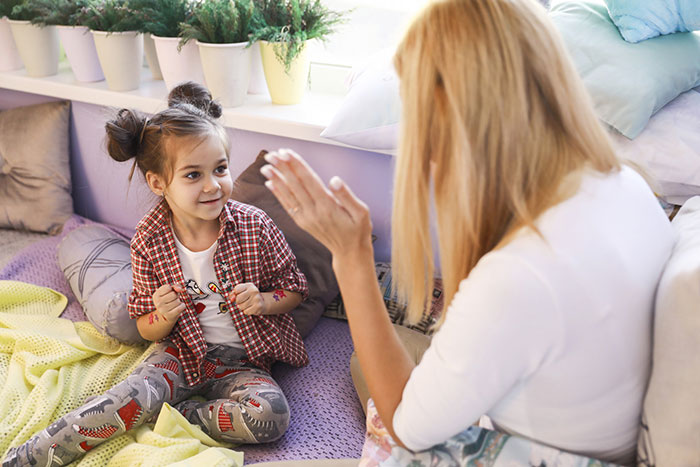
Image credits: Rose Wiegley
To gain more insight into this topic, we got in touch with Dr. Samantha Rodman Whiten, aka Dr. Psych Mom, and parenting coach Sue Atkins, host of Navigating the Digital Jungle.
They were both kind enough to have a chat with Bored Panda and discuss some of the harmful parenting trends they've seen online.
"Over-praising and over-validating kids is a parenting trend that I find questionable," Dr. Rodman Whiten shared. "This is an era of hyperfocus on kids and obsessing over their feelings, and this is often to the detriment of the kids, who can't learn how to identify their emotions and self-soothe without parental involvement."
#4
Safety obsession (I'm speaking for American parenting here).
I'm not talking about child safety seats, side airbags and bike helmets, I'm talking about over-parenting to the point of doting on every last bump, bruise, mishap and misadventure.
When we treat our kids like frail glass dolls, what exactly are we teaching? That if a risky adventure goes awry they'll fall apart and be shattered. Well guess what - no risk, no reward. No challenge, no growth.
Why is this a dangerous trend? Because risk averse kids become risk averse adults. Without calculated risks, you'd have no moon landing, you'd have no major inventions, etc. I'm really concerned for future generations.
People wonder why I don't stop my little tykes when they're at the top of the stairs. Well... a fall won't kill 'em. In fact, the sooner they learn the better. Same idea for germs and dirt.
Side note.. I wonder how much of this overlaps with the fact that the American legal framework is so heavily litigious.
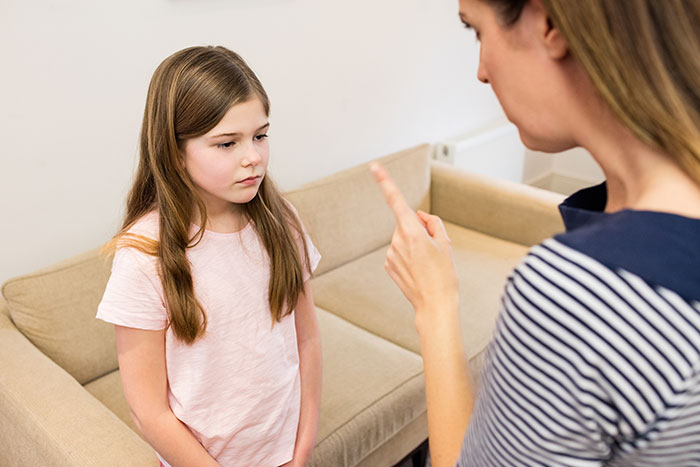
Image credits: Andrew Lemke
"One concerning trend is the increasing reliance on screens to occupy children," Sue added. "While technology can be a useful tool, too much screen time—especially for young kids—can interfere with sleep, language development, and real-world interactions."
"Research shows that children learn best through conversation and play, yet many are spending more time swiping than speaking," she continued. "I recently covered this on my Navigating the Digital Jungle podcast, where we discussed how screen time is replacing vital opportunities for parent-child bonding."
#5
My sis is an OD and she works with the disabled and children almost exclusively. The worst are rambunctious children who won’t sit still. You REALLY have to sit still when someone is working on your eyes. REALLY. Her secret power is she hugs the kids who won’t sit still for a minute and they melt. All they want is someone to hug them and tell them everything is okay. Some children clutch onto her like they’re drowning and she is driftwood and they start sobbing. Their parents will buy them any number of expensive electronics but won’t spend time with them or hug them or even engage them. When my sister hugs them, they are absolutely desperate for any kind of physical comfort. If you want your kid to be open to molestation, then ignore them. Never hug them. Never tell you love them. They WILL find what they need SOMEWHERE. The parents tell my sister their children can’t wait to come to the OD office. They don’t understand why. It’s because they want SOMEONE to hug them and care for them for a change and the latest iPhone doesn’t do that. We all need a hug now and then. Where is Leo Buscaglia when you need him?
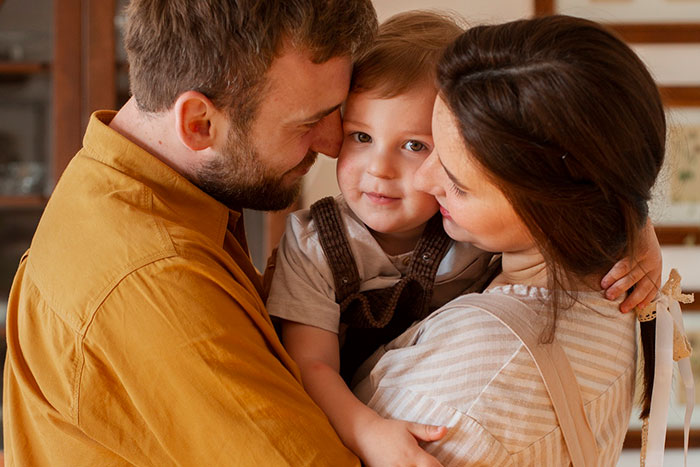
Image credits: Jay Bazzinotti
Sue says another worrying trend is the way “gentle parenting” is sometimes misunderstood as avoiding discipline altogether. "Children thrive on clear boundaries, and being kind and respectful as a parent doesn’t mean saying yes to everything," she explained.
As for whether or not these trends will stick around, Sue noted, "Some trends will pass, but the bigger issues—like how we help our children manage technology and develop emotional resilience—are here to stay, which is why I talk about them so often on the podcast."
#6
Suppressing a child's curiosity. Not dangerous, perhaps, but a terrible thing.
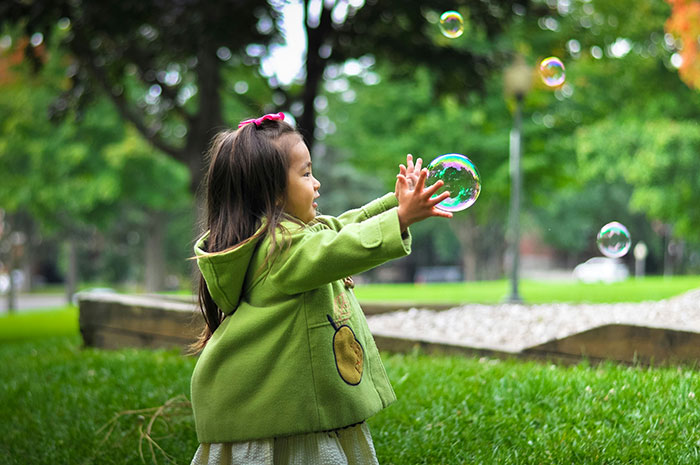
Image credits: Daniel Schwarz Carigiet
#7
Parents find it easy to let the school, teachers, classmates, TV, and movies shape the personal characters and values of their children.
The children learn both the right and the wrong without being able to distinguish between them. How could they while being exposed to everything for the first time in their life? They need to be coached by who has the knowledge, experience, and cares about their wellbeing and future. Only the parents, out of their love, have the children best interest in their hearts.
Parents have the responsibility of protecting their children from the ills of the society and helping them be good citizens.
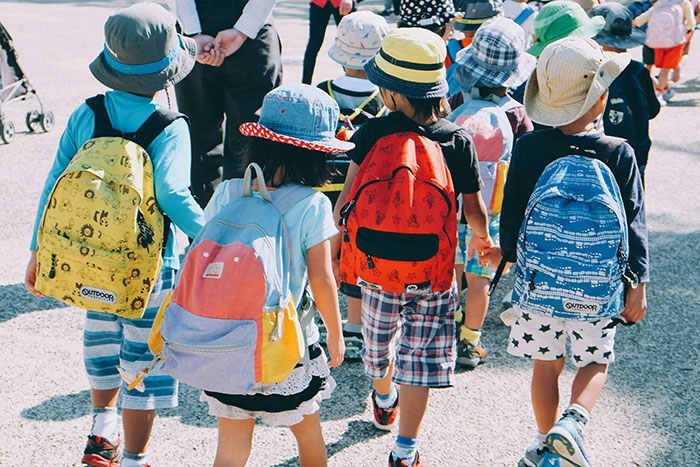
Image credits: Ali Habbak
We also asked the experts why there are so many parenting trends emerging all the time.
"New trends pop up because people want to do better than their own parents, and fix any deficits that they saw in their own upbringings," Dr. Rodman Whiten shared. "For example, if you were left alone too much as a kid, you may swing to the other extreme and never give your child a minute of alone time. The intentions are good, but parenting in 180 degree opposition to how you were parented will be dysfunctional as well."
#8
Sterilizing your child's environment!!
Stop using antibacterial everything and not letting your kids play in the dirt or touch anything.
Kids need to adapt to the germs in the world they live in.
They need to get sick, and get well WITHOUT antibiotics, and build up a resistant immune system.
The world is not sterile.
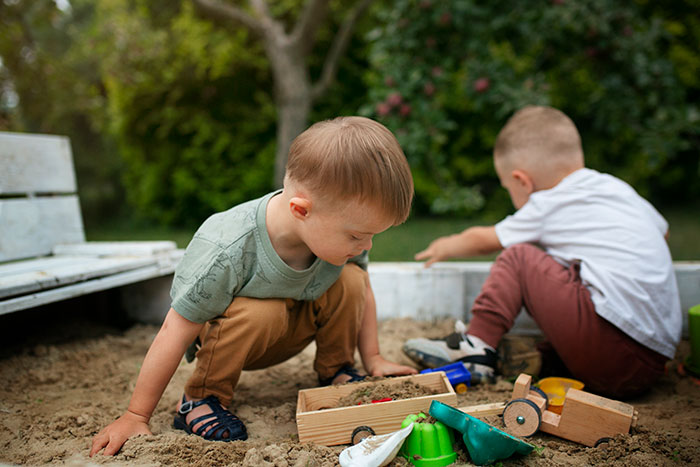
Image credits: Becky Lee
#9
Trying to parent alone. More and more parents and families are isolated from their neighbors, their extended families, their friends, their support. We think we have to know everything, be able to handle anything and never ask for help. Its insane. And not only is it insane but it keeps your children from having experiences outside of your home, or your created environment.
They miss that crazy Auntie who yes, may give them more sugar than you like, but also speaks French and Spanish to your child and shows them the delight in experiencing another culture. They won't get to know 80 year old Gladys who lives at the end of the block,who while they help her prune her roses tells them stories of another time from her childhood in Brooklyn. They miss the flavor of actually living and breathing in their world. They miss their village.
And we as parents miss OUR village. We miss the Mom we can commiserate with over another sleepless night, who also has on a stained shirt and is wearing a Dora the Explorer sticker on her knee because that is high as her toddler could get it. We miss the sage wisdom from our elders who raised healthy, happy, successful children who slept on non-organic sheets, drank from the garden hose and were allowed to chase the ice cream truck around the corner without fear that they would not come back.
The world is a curious place and we are meant to experience it. Sometimes that means not being able to control everything, but it seems to me, that in that release of control, sometimes, sometimes, we have our most rich and memorable experiences yet. Don't you think our children, and we, deserve that? A colorful, tiresome, flavorful, go until your legs cramp and you lay in the grass looking at the clouds without worrying about what pesticide may seep through your clothes experience. I know I do.
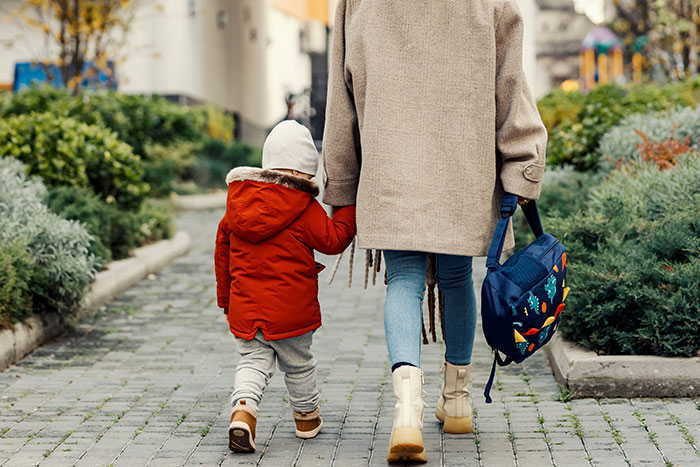
Image credits: Allison Wilson
"Trends come and go because every generation faces new challenges," Sue noted. "Social media has made this even more intense, with TikTok and Instagram full of bite-sized parenting advice—some of it great, some of it misleading."
"That said, parents don’t need to keep changing their approach to stay 'up to date,'" the expert added. "The fundamentals—love, security, boundaries, and connection—don’t go out of style. I always encourage parents to focus on what works for their family rather than feeling pressured to follow every new trend."
#10
As somebody's child, and now also three people's mother, my only answer to this is: expecting your children to provide you happiness and to take care of you in your old age. My mother placed constant pressure on me as a child that it was going to be my job to look after her when she got older. (Which as it turned out never happened as she died at 60 of ALS). She was a single mother and always made me feel that I was the only thing in her life that could make her happy. This is too much pressure for a child, and ultimately a very selfish expectation. In the end it pushed me to the other end of the spectrum, moving to a different country, away from her. My children bring me great happiness. But I do not EXPECT this from them. Nor do I expect them to take care of me and my husband when we grow old. With any luck we will have raised them with the right morals and to be kind enough to do what they feel is right in their lives. That's my job.
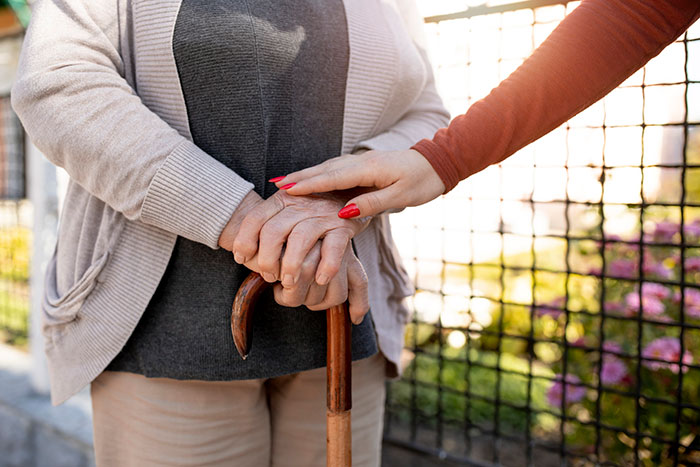
Image credits: Emma Markham
#11
"If your baby / child cries just ignore it, it's only after attention. It'll soon learn." So many people say this and think it's acceptable. If a baby or child cries you need to see what is wrong, is it hungry or thirsty? Maybe it does just want some attention. What is so wrong with a baby or child wanting attention? Pick that child up and give it a hug for goodness sake. But sometimes the child may be over tired and leaving them in peace is the best thing for the child but don't ignore them, keep an ear open and if their crying changes go and check to make sure everything is ok.
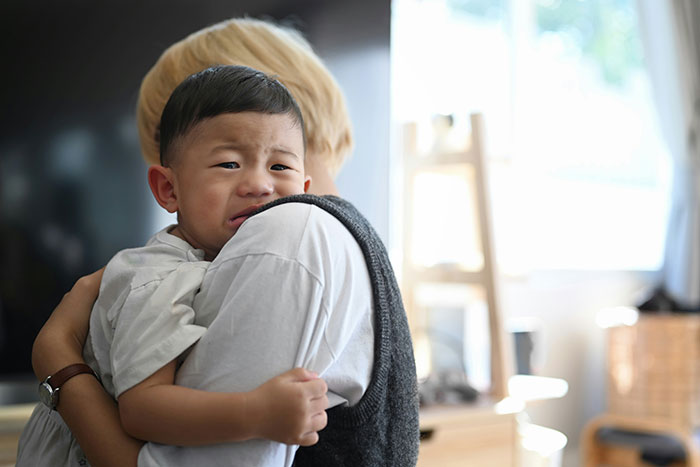
Image credits: Abigail Thomas
#12
Not getting your child vaccinated. Children with allergies and other unique medical conditions aside, there is absolutely no legitimate, morally defensible reason other than pure ignorance for choosing not to do this if it is available in your society.

Image credits: Eric Segeren
The parenting experts also shared some wise words for any parents out there who aren't sure which advice they should trust.
"Look at the source – Is the advice coming from child development experts, or just going viral? Think long-term – Will this trend help your child grow into a confident, independent person?" Sue asks. "Trust your instincts – If something doesn’t sit right with you, there’s probably a good reason. [And] stay informed – I cover these kinds of topics on my podcast, helping parents cut through the noise and focus on what really matters."
#13
Among the other great answers, here's one parenting fail that I saw that really irked me.
I was eating in a burger chain store and watched through the window as a woman pulled up in a minivan. She then proceeded to haul this enormous, deluxe stroller out of her van, set it up, lift her toddler out of his car seat, and strap him into his stroller.
Distance from car to front door: about 20 feet.
She wheeled him to the door, expertly negotiated the door and the stroller, walked up to the counter and ordered (about 15'), got her food, and sat down at a table (10'). All the while this kid never left the stroller.
Now maybe there was something wrong with the little guy that he couldn't walk, but he looked to be about 2 or 3 and developmentally normal.
Yes, I know it's easier and possibly safer to keep your kid safely contained in his stroller, but kids need to walk and run and get exercise. Parenting fail.
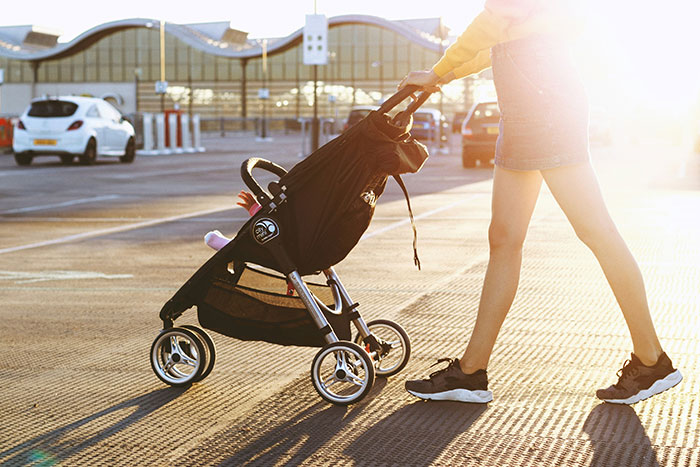
Image credits: Shelby MB
"Overall, the best approach is to be moderate and assume that if you are parenting out of anxiety, your judgement may be compromised," Dr. Rodman Whiten noted. "Kids are resilient, but they need calm and confident parents."
"Any parenting trend that requires so much energy and focus that it takes up all of your time and makes you tired and anxious is not a healthy one. Kids need to see happy, calm parents," she continued. "So a parenting trend that makes you feel as though you need to be monitoring your behavior or your kids' behavior 24/7 is one to steer away from!"
#14
This is coming from a teen myself so I may not be qualified to answer this but when your kids get older remember to listen to them. We definitely are not always right but listen to our opinion as equal adults. You don't have to agree with us but just listen. I guarantee it makes your kid view you as a respectful serene human, not just their crazy mom. It's a trend I see to downplay how your kids are feeling or their opinions to make them think whatever they're gong through is not a big deal. However this does not work. It's makes your kid feel isolated.
#15
There is a fast spreading belief that immunization shots are a cause of autism in children. Many people on my wife's mom's forum would castigate her for telling them that this is a hoax and that there are numerous articles to disprove this. They would say things like "my first kid got immunized and he is now autistic whereas my second child didn't and she is fine." Sure, they are well-meaning people and you can parent your child however you wish, but if you're spreading misinformation to other parents you're putting their children's lives at risk.
Scary how many people can believe a lie and assume it to be true.
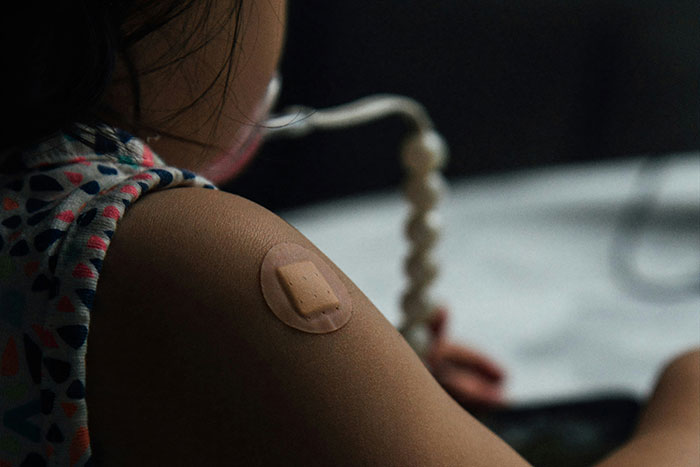
Image credits: Kalvin Sid
Finally, Sue says, "Parenting isn’t about following every new trend—it’s about knowing your child and making thoughtful choices. If you’re feeling overwhelmed by all the advice out there, join me on Navigating the Digital Jungle, where I break these issues down with real-life examples, expert insights, and practical solutions."
#16
1. Not modelling good behavior for your children - expecting them to do what you say, not what you do. Kids sense the hypocracy and lose respect.
2. Not teaching critical thinking skills.
3. Being too germophobic. See "hygiene hypothesis".
4. Raising your kids just like you were raised because it "worked", or conversely, doing everything the opposite because it didn't. Take the good and reject the bad.
5. Parents fighting too many of the kid's battles for them, like arguing with teachers over grades, doing the kids homework or school projects for them, navigating the child's social relationships etc... It is tough, but there is a fine line between helping a child and taking over.
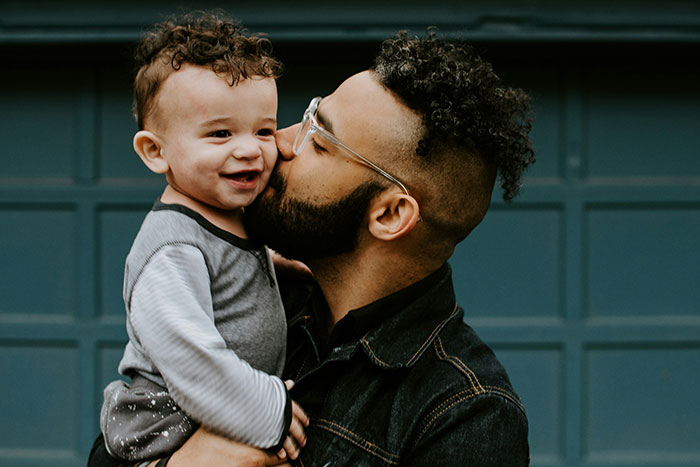
Image credits: Judi Golden
#17
I'm not sure this is one of the "most" dangerous practices but I think it is a problem. It seems to me we are always looking for a diagnosis and medication for our kids' problems. Does he have ADHD? Maybe just regular ADD? What about Asperger's Syndrome, dyslexia, etc, etc...
When I was a kid there was a tendency to blame everything on Your Mother. This was a holdover from Freud, and with good reason it doesn't get as much play as it once did. But the substitute, looking for a name for a learning disability or some other diagnosis is also not always correct and especially if it leads to medicating a kid.
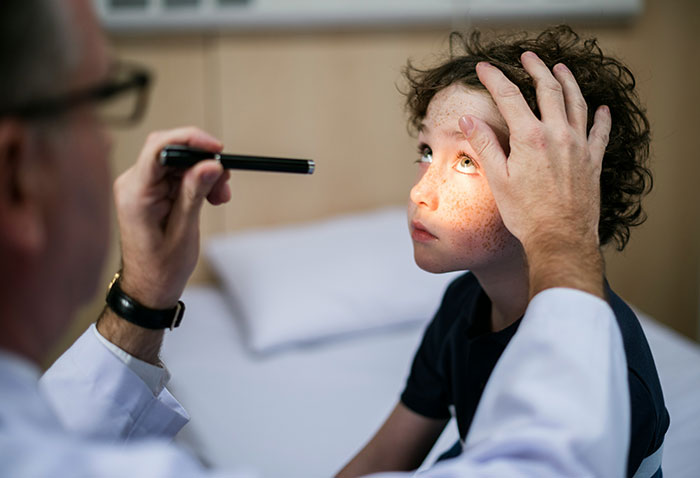
Image credits: User-12734329536078645195
#18
I have always thought that a dangerous trend in child raising is the "I'm not going to be like my parents" attitude. Every generation of parents seem to be more and more lenient with their children because they don't want to be "old fuddy duddies" like their parents were (this is also kind of like parents trying to be their kids friends first and parents second). My mom's mom thought rock and roll was evil music. My mom though my music was just senseless noise. Now kids listen to music lyrics that would make an old timey carnival barker blush!
Our grandparents grew up when kids should only speak when spoken too, and mothers and fathers were to be respected and obeyed without dissent. Then when they became parents, they didn't want to be as strict with their kids so they relaxed the rules. We all remember the things that our parents did that we hated or didn't understand. These are the things we don't want to enforce on our kids.
When I was a kid the Parents were still the pinnacle of the family. Then some time in the eighties or seventies there was a giant shift. Families started making decisions based on what was best for the kids. Not what was best for the adults. My wife grew up in such a family and when we compare childhoods it's as if we grew up in two different countries.
The danger in this, I believe, is if we get too lax in our parenting, kids will never learn respect for their elders and for rules. Granted, some of the things our parent's and grandparents weren't allowed to do was because of ignorance and fear of certain things. We know a lot more now about what is safe and healthy for our children than we did then. That doesn't mean we can't still teach our children how to be respectful.
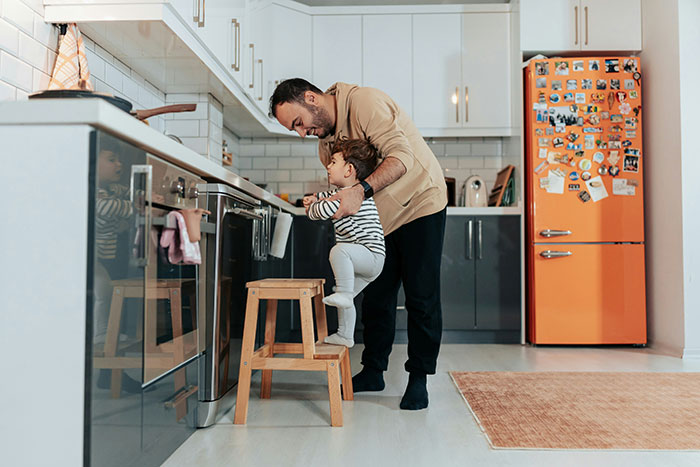
Image credits: Michael Hennessy
#19
Personally, I’m really against hitting. I’m thinking some readers might think “yeah, well, your kid is only 2”, but I really hope I have the courage of my convictions and never hit my daughter.
Secure attachment is really important to me, and hitting damages that. Studies also show that hitting doesn’t lead to better behavioural outcomes. We teach our kids that violence is wrong, and we’re not allowed to hit adults, so I really feel like it shouldn’t be okay to hit kids either.
Also, I feel like if I hit my daughter, I’m telling her that it’s okay for someone to hit her. Not something I want her to internalize for when she’s an adult.
It’s still unfortunately very much normalized in our society though.
Another trend imho is figuratively wrapping one’s kid up in bubble wrap: if they’re only starting to make decisions when they’re adults and don’t have you there to fall back on in the same way, they might make terrible decisions. Overprotection can really backfire.
Of course, there’s the other side of the spectrum where people don’t even know where their kids are half the time, so a little balance is needed!
#20
The Tiger Mom Approach: Teaching your children not to play and be creative. Teaching them that they are only loved if they have performed succesfully. Draining them of self-esteem and teaching them not to enjoy life.
(The alternative to the Tiger Mom Approach is not indulgence and lack of discipline. Giving your child love and joy can easily be combined with authority and teaching them to make an effort.)
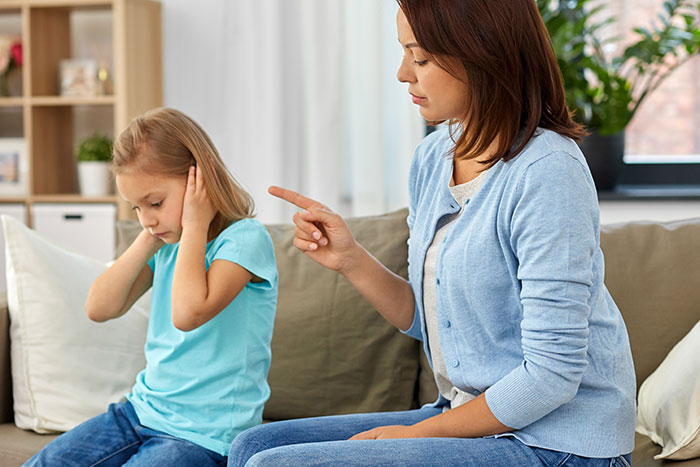
Image credits: Torben Sangild
#21
I didn't see this mention in other answers but I believe that some parents too swiftly resort to medications to treat their kids' behavioral problems. I don't have any hard scientific or statistical data to back this nor do I want to start a debate on the merits of such medications as I am only basing my opinion on my personal experience.
I am adult in my 30s and was diagnosed with ADD a year ago. Even though I was prescribed a low dosage of amphetamine-based medication, I could feel its strong effects throughout the day. Having a hard time sleeping from being overstimulated by the drug I searched the side effects such as insomnia online. By reading different online forums I was shocked to learn that this kind of drug was prescribed to kids in doses 2-3 times higher than mine. I read posts from concerned moms inquiring about their 6, 10, 13-year olds having trouble with the drug such as rapid weight loss, insomnia, weakness, "zombie-like" state, etc. But that's not all. They also list their kids' daily stacks that include medications like Prozac, Intuniv, Adderall, Dexidrine, Vyvanse, Doxepin, Fluoxetine. This is crazy! Do parents even realize how strong these medications are?! When my doctor prescribed me the second medication to treat insomnia I had the worst hallucinations at night even though the dosage was set at minimum, "kid's dosage" he called it. Parents ought to be more careful about letting their kids take medications like this. I would rather have my kid not do well at school than have him or her be high as a kite at such early age.
#22
Not teaching them to take personal responsibility for their actions. It is never correct to say somebody else did/said something and therefore justifying "It's not MY fault!"
We are all responsible for our own actions, choices, habits, friends, and attitudes. There are extreme exceptions in 1% of the cases, but not every day, all the time.
Ergo, "We are not ALL winners, with no losers!"
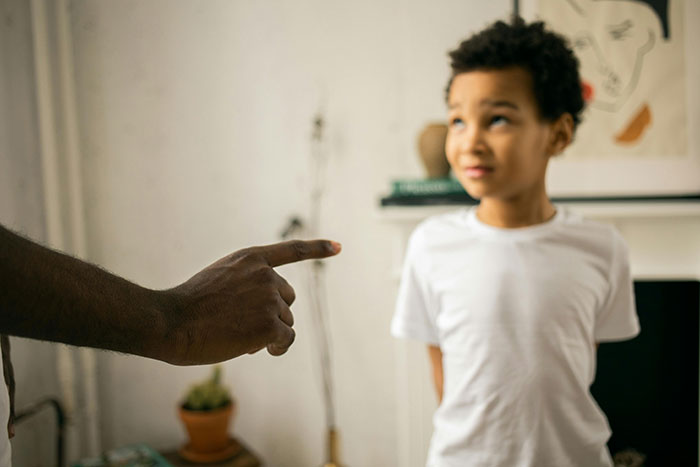
Image credits: Tom Byron
#23
Do not publicly shame or humiliate your child as a form of punishment.
It's normal for kids to screw up, and it's embarrassing enough to be caught by your parents for doing something you're less than proud of without them broadcasting it to a bunch of other people. This can have devastating effects on a child's self esteem by engraining in them the idea that they are a "bad child." The child will internalize feelings of worthlessness and shame, especially knowing that others know about everything they've done wrong (and often don't hear about the things they've done right).
Please, respect your child enough to have an open and honest (and private) discussion with them when they mess up. This allows from them to learn from the experience and try to do better in the future.
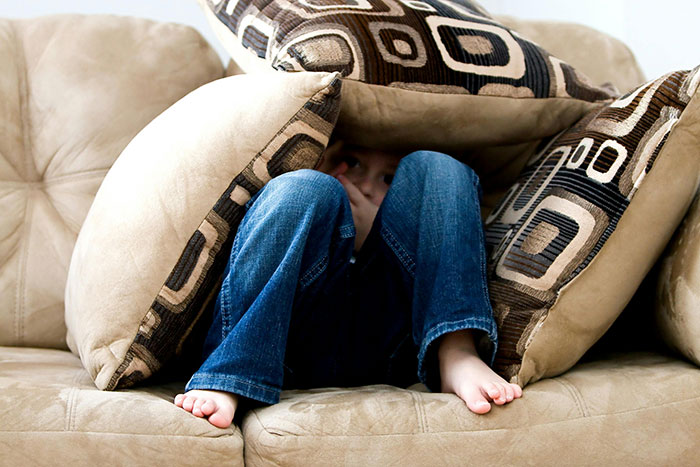
Image credits: Olivia C
#24
To me, the very worst, most dangerous thing a parent can do - even without realizing it (and I admit occasional guilt) - is to simply not listen to what your child is saying to you. To tune them out as white noise that is competing with what you would rather pay attention to. When I realized that I was doing this, I was shocked and disgusted with myself, because that's what my parents did to me, when I was young. After realizing this terrible habit, I adjusted. Now, regardless how minor, ridiculous, irrelevant, or whimsical, I listen to everything my children say with undivided attention.
The thing that really snapped me out of that rut was the fact that my daughters have lost 3 of their friends, this year alone, to suicide. The chief complaint among those three, before they left? They felt neglected by their parents. Just unwanted baggage. I never want my children to feel that. It is unavoidable that a parent will make their child feel that way, simply by denying them something they really, really think they need. But, that's not the same thing... and they realize that. But, when parents dismiss their children with a nod, a "mm hmm", and a wave of the hand, how else are they to feel? So, I made it a point to be attentive. It can be difficult, especially when the conversion consists of 12 1/2 minutes of "My Little Pony" fan fiction... but it's important to her. Because of that, I give her that ear to show that she's important to me.
#25
Not holding kids responsible for their actions. Children need to learn there are consequences for their actions. Sheilding them from the fallout of misbehavior is a disaster-in-the-making.
"Convenience" parenting - not paying attention to the child's needs because it interferes with the parents desires. Most little ones crying in stores are bored, hungry or need a nap. Shop at a different time or leave them with a sitter! Taking kids to inappropriate movies, allowing them to watch graphic scenes on television. Taking children to sporting or other entertainment events on school nights and keeping them out way past their bed time. Kids get a lot of blame for what are poor and selfish parenting decisions.
#26
Indoctrinating them into a cult before their reasoning minds are fully formed. This often involves hacking off parts of their genitals.
#27
Certain types of sleep training. Specifically, letting a newborn baby "cry it out" in another room, till the child has screamed for an hour and often vomits, until it finally falls asleep.
A horrible, horrible practice, largely confined to the US I might add. Some pediatrician wrote a book advocating it, and now there are all these parents convinced that it's ok.
I actually had a woman (a real estate agent) push one of these books on me. As soon as she left, I threw the book in the trash and washed my hands.
Pediatricians in the US seem to like advocate child rearing practices that are "based on science" but in reality, unnatural and insane.
#28
Parents being their children's best friend....
More specifically parents believing that they are their child's best friend.
A child will develop numerous friendships away from their parents, which you may or may not agree with, it's part of growing up...But children only get a set number of parents, they need you to step up, and set boundaries, which you then enforce.
I am not talking about unreasonable controls, but children need to know that someone cares enough to hold them accountable for their behaviour. They need you to be their champion, certainly, but they also need you to realise that they are not perfect, they will mess up and misbehave, you are responsible for,fairly, correcting their behaviour, with love and whichever consequences you decide are best for your family.
Consequences can be the naughty spot/step, restorative justice (helping them realise what they have done, and them finding a way to make it better), time outs, grounding etc. I have also smacked each of my children once, for similar misbehaviours involving roads as young children.
As a teacher I have lost count of the number of parents (usually mums) say I am little Jenny's best friend. Sorry but little Jenny has plenty of friends her own age, but she is completely incapable of correcting her behaviour to actually get on with learning.
#29
Not teaching a child how to swim.
#30
Setting the expectation that everything must be fun for the child, at all times.
The opposite - the Tiger mom approach.
Both extremes are terrible.
#31
Overloading their lives with stupid activities. Life is not a freaking competition, it's just about being happy and playing around :)
#32
Thinking that you are your kids friend and not a parent.
#33
Raising children in cultures of fear, hostility, intolerance, and isolation.
#34
A dangerous practice I have seen is the parent/s living through their children.
#35
Telling their children that they’re smart. In addition to the fact that there’s no reason to praise a child for being smart- that’s something they can’t control! they’re born with it! it’s not an achievement!- it’s linked to procrastination and debilitating perfectionism in children later in life. Children who are from an early age praised for being ‘smart’ will, as soon as they face a challenge they can’t solve easily, shut down. They haven’t been taught to work at things that they have difficulty with, and they haven’t been taught that hard work is a valuable and worthy thing. Instead of praising children for their intelligence, praise them for putting effort into things. Not only will it help their mental health, they’ll be better prepared for anything they have to do that isn’t easy.
#36
I noticed an interesting thing.
When you have 2 kids. One older than the other, whenever there's 'something' happening between them (use your imagination), and the younger usually screams/cries quicker, we tend to ask the older one by default "what's going on"? "What happened there"? Etc.
We ask the older one, sub consciously and that is not allways fair and could create jealousy, resistance, etc.
I started recently asking the younger one rather than the older one, and it works magic.
#37
Exposing a child to too much too soon.
Especially emotionally charged (negatively) relationships.
Kids just don't have the tools to manage volatile exchanges.
Everything relates back to them in their mind and they think they are at fault.
It is a terrible injustice.
#38
1. Too little downtime together as a family. This is what gives your child the roots and skills they need to get through the challenges in life.
2. Love them for who they are. Many parents are too stingy with expressing appreciation, acceptance & validation of their children.
3. Children are not possessions; don't use them to express yourself.
If you get it right, they'll come to you when the going gets rough, but you have to make sure they KNOW you're a good listener.
#39
Speaking ill or well of the child in front of them. Both are equally disastrous.
Speaking ill of the child, talking about his faults, or something silly that he said affects the self-esteem of the child. S/he can pick on your tone, your facial expressions and also gauge the reaction of the listener. S/he will be more cautious on being himself around you and the listener the next time.
So your child may do that thing again, just be more careful of you finding out, that's all.
So consider the analogy of losing a bit of your child each time you do that.
Similarly speaking well of the child encourages the child for all the wrong reasons: mainly your approval. A better thing would be to tell the child how what they did will benefit them in the immediate now and the long run.
All this WITHOUT instilling the fear or shame attached to NOT doing it. Very important to remind the child of the reward for him, without the punishment.
#40
Everyone has already added all the main factors. I'd like to add not listening. We never really listen to our children, just because they are young does not mean they don't deserve a voice. I talk to my children constantly, they aren't born ‘naughty’ they act in ways society views as incorrect but most of the time it's frustration due to not being understood or listened too. They a little humans, they feel, think, want, dislike just as adults. But they are not quite literate enough yet to say ‘ im having a paddy on the kitchen floor mum because I wanted the same drink as my siblings but you didn't listen instead you told me to stop moaning’
#41
“You're big now. Big girls/boys don't cry.”
This one is especially crippling. As a kid, all you want to do is fill the shoes set for you, and even if they are awkwardly shaped or hurt your feet when you put them on, you will do your best to suck it up and deal with it, thinking ‘hey, if other kids can do it then so can I'.
Problem is, other kids most probably feel the same way. Then who, you might ask, has set up this example for kids? Simple. Parents who will do anything to stop their children from disturbing their calmness, even if it means restricting their emotions and risking irreversible psychological damage.
So please, please, if you have a child, take a moment every day to discuss their feelings and I daresay let them cry if they feel like doing so. That way, you'll teach them a valuable lesson, and that is crying doesn't show weakness, but shows that you've been strong for too long.
#42
I have a couple I'd like to mention. One is letting kids spend too much time with technology. Another is not talking to their kids about sex, waiting too long to talk to them about sex, or teaching them that sex is shameful. These "abstinence only" school programs drive me nuts. Let's get real about human nature.
#43
Wishing children to grow up too quickly and not appreciating all the milestones and little steps it takes to development and teen hood. In the western world there's much emphasis on making our little ones become independent as soon as we can, our motto - “I can't wait until Charlie can feed himself” or “I can't wait until Susie is at school”- willing time away not valuing the little things until our lil ones are big ones and we begin to reminisce. It's dangerous to parenting because it means our children do not get to be children in the way they should and we put unnecessary pressure on them when in reality there is plenty of time- childhood is a much shorter period than adulthood. So before you start comparing your little ones development with your friends little one of the same age- appreciate everything he/she does as everything is an accomplishment because before you know it they will be adults. Look at it this way- there is a last time for everything…….a last time you will change their nappies, a last time you will wash their hair, a last time they will need you to cut their food into bite sized chunks- and you will not know when it will be the last time…..
#44
Allowing them to make "decisions" or in fact "asking for their opinion" without properly teaching them HOW to make good decisions, & how to formulate & express a proper opinion.
#45
The single most dangerous practice of the past 40 years has been helping your child so they do not have to learn to overcome challenges and do work for themselves.
Children at all ages should have to do things for themselves. From learning to pull themselves up on furniture to learn to stand without your help. To picking themselve up off the ground when they fall as toddlers. To starting to do chores around the house correctly, and without help when they reach the 3rd grade. To being made to do their homework before they go out to play. To being held accountable for their actions from the time they are toddlers (allowing that a 30 second time out is plenty of accountability for a toddler).
#46
Social media disengagement.
About 80 percent of parents I see at the park are on cell phones, kindleand such as there kids play and at times seek to draw their parents attention.
#47
I think the trend to keep up with and compete with what seems to be the next big thing that everyone else is doing. This particularly happens when parents have the economic means. They enroll their children in tons of activities and over schedule them to everyone's exhaustion.
The need for children to learn something just for the fun of it has been replaced by the need to be the next great athlete, artist or celebrity.
This happens differently in poorer communities where parents don't have access to as many after school activities or have put their children in them to keep them safe and off the street. I see parents who bust their buts in these communities to get their children the latest video system so they can keep up, be competitive, give them a way out of their circumstances or just provide some happiness. This causes financial stress and worry that their children are spending too much time on videos. Again the need for safety and to know where they are also contributes to this.
#48
To let their children playing with gadgets.
Yes, it is good to expose kids with technology but at the same time you are actually limit children ability to interact with nature for example.
Gadgets use for education purpose is okay. But as a parent, there are limits on it. Let them use ipads or computers to learn and to enhance their knowledge with your guidance.
Like me for example, I have started to use my ipad to taught my 6months old baby on ABCs, 123s and colors. Only for about half an hour per day.
#49
Something I catch myself doing is trying to parent/control emotions. A kid feels how he/she feels however rational it is, and you can't dismiss it, nor can you punish it away.
#50
Overanalysis.
Child rearing was once simple: you raised a child who understood he/she had obligations to family and society. Everything from there kind of took care of itself.
Today child rearing is supposed to require extensive analysis. We need to be careful not to harm self-esteem. We need to be sure the child is exposed to the right educational opportunities. We need to be sure the child is widely-traveled.
I wonder if today’s children are really better prepared to function well as adults than preceding generations of children.
#51
Helicopter parenting: Not letting a kid learn how to take care of him/herself, make decisions for him/herself, or deal with consequences.
Not respecting their kids' privacy when they need it.
Overposting about their kids on Facebook and other social media.
Too many "mama/papa bears" who overreact when someone else takes it upon him/herself to correct their kids or stop them from doing harm, but don't discipline their kids themselves.
#52
Avoiding contraception. Research has consistently shown this often leads to having children. And once that happens, you're screwed.
#53
Recently, I have noticed so many parents are out and about with a child, an ideal time to chat and answer little one's questions and the parent is on the phone.
During the summer I was sitting on a bench in the park while my dog was running round and for over ten minutes a man was pushing a child on a swing, talking constantly on the phone. This should have been fun, interactive with the toddler laughing away. Nothing.
I also saw a woman, pushing an empty buggy, chatting away on her phone and her child was about ten feet behind, trailing along. The woman crossed the road while talking and didn't even look back to see how the child managed. I think she was so engrossed in her conversation she thought the toddler was in the buggy.
#54
Raising children without limits. Parents today seem to think that their child(ren) will suffer by not getting their way all the time. Then they go out into the world and are shocked to find out that they are not the center of the universe and are actually expected to follow rules just like others.
#55
ipads replacing attention !
#56
1. Thinking your child is a failure because he or she has failed a few times.
2. Judging your child's capability and puttting fences and limitations to what you think the child should do.
3. "I told you so"- Pointing out the child's mistakes, failures and wrong decisions. The child also knows what he/she has done. Be a parent not a critic. Leave some work for the world to do.
#57
One of the most dangerous trends is reading too much on the internet every time there is a potential issue. You can drive yourself to madness doing that. Use a little common sense. How did any of us ever make it to adulthood when our parents didn't have access to all this "knowledge" on the internet.
I've said it before, in a different discussion, but it bears repeating here. Knowledge and Common Sense are inversely proportionate.
#58
Expecting teachers to parent your children.
#59
Stopping your children from being outside the home on their own and with their friends. Children need adventures of their own without adults to be self reliant, aware and imaginative.
#60
Making your children pursue what you want them to do and not what they want to do.





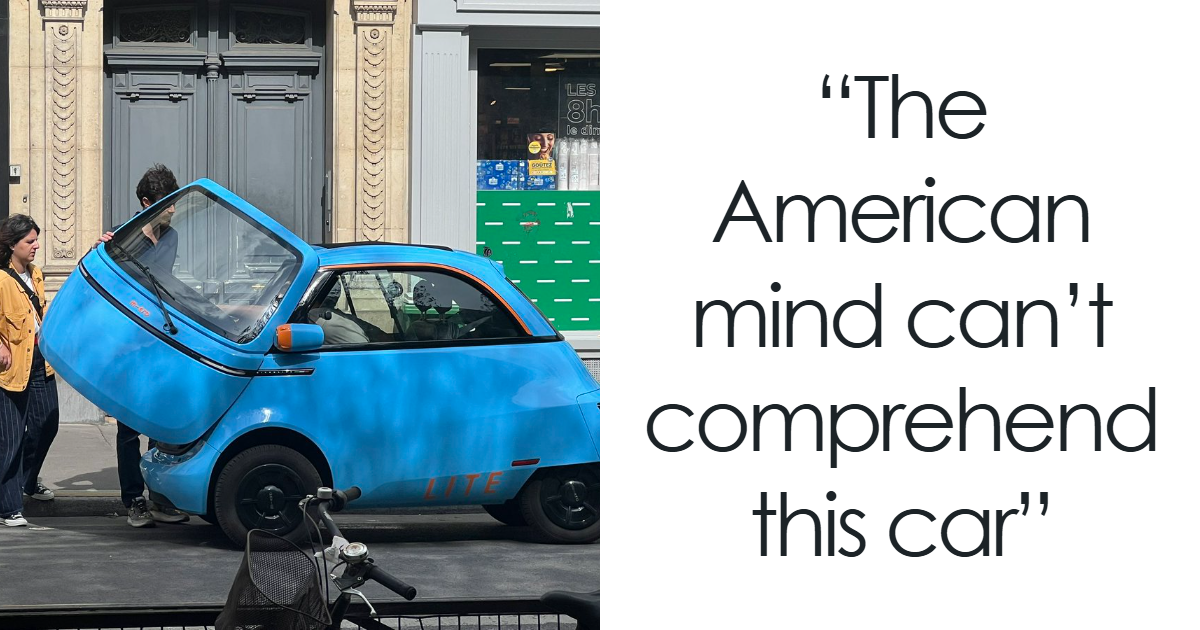






 English (US) ·
English (US) ·